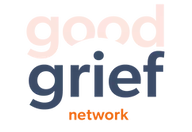Reflection by Adair, Good Grief SLC organizer
I think it’s the smoke from the wildfires, maybe combined with the valley’s more consistent auto/industrial pollution, that’s given me this cold. Either way, I’ve spent most the weekend laid up in my apartment, alone but for my cats, reading books on psychodynamic therapy to help myself see that my mind’s already whole, a beautiful adaptive organism, applying learnings from past environments to the ones I find myself in now.
Perhaps because of this, my mind wanders to my younger self, first hearing about climate change in a household where “global warming” was a joke heaped only in ridicule, not the heaviness of dread and enveloping anxiety that comes so easily to many of us in this confusing decade of the information age. But these moments–lying on the couch soaking in the sunlight from my window, later coming back in the darkness after taking a slow walk through the pink-clouded sunset–are so different from either the fear of the unthinkable threat of climate change, or the white-picket-fence lifestyle my younger self was raised to hope for.
My sore throat, spacious unshared apartment, and the professional career I also keep up on over the weekend blend these realities that are often kept so separate: I’m carrying out the liberal dream of business-as-usual in a growing economy while feeling the smoke of a world on fire breathe into my body. My alone-ness at home reflects not only my personal journey, but a vote of no confidence in the future as a fitting place to raise a family. There’s something quietly ecstatic, transcendent, about letting these dreams and nightmares crash together in such a calm space of reality.
Acceptance isn’t the antithesis of action. Even with my scratchy voice, I phonebanked volunteers for another organization this afternoon, hoping to bring together settler and indigenous volunteers to demand justice for the missing and murdered indigenous. It won’t save the world. But the world’s been ending for centuries, maybe forever, depending on who you ask. What matters is the ways we come together–for ourselves, for each other, for our social and ecological communities–and all the time we get regardless of how it ends.

